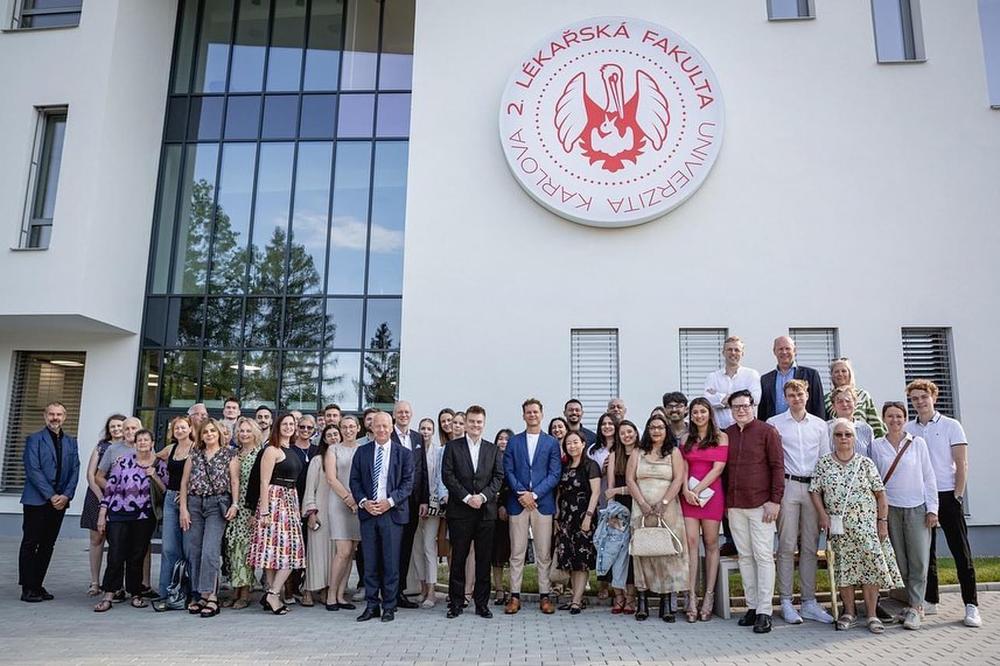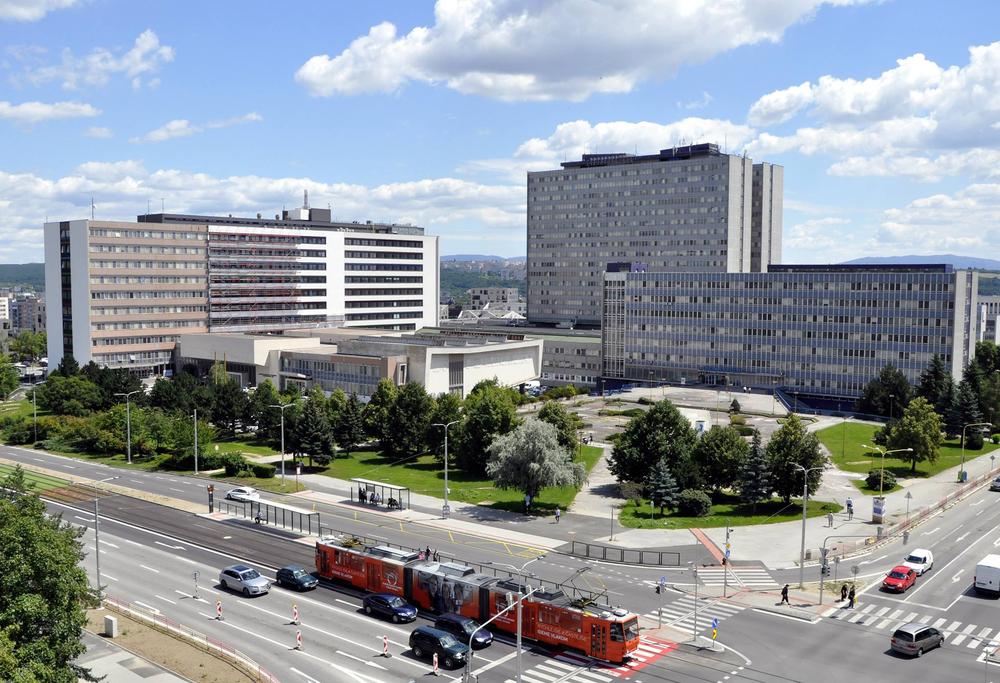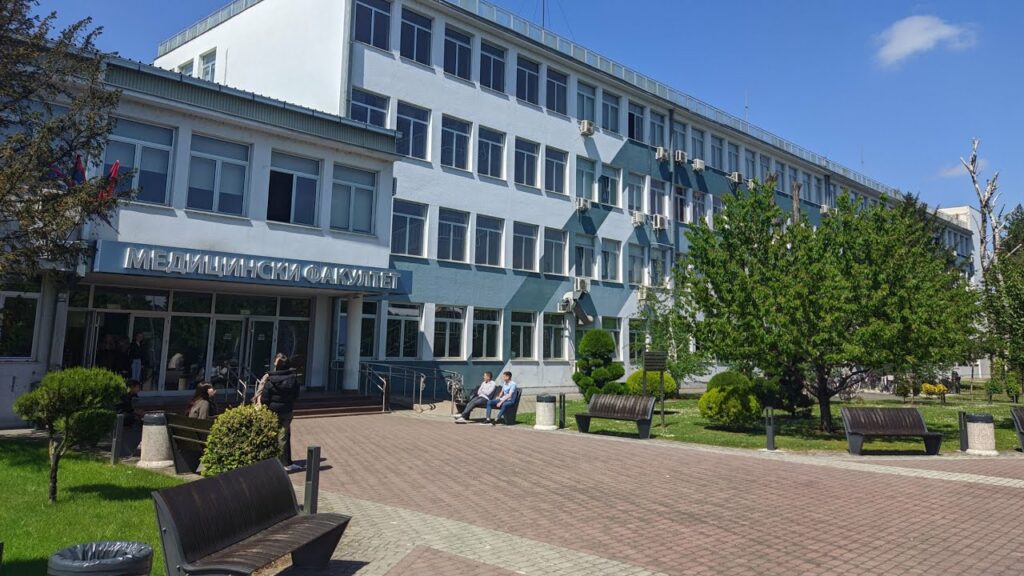Visa-Friendly Countries to Study Medicine Abroad

When students apply to study medicine abroad, they often worry about the visa application process, the paperwork, the finances they need, or the chance that their application will be turned down. The good news is that a number of European countries have simplified their visa applications, making it easier to start studying medicine abroad without too much stress.
This guide covers the best visa-friendly countries in which to study medicine abroad, their visa requirements, options for medical programmes in English, tuition fees, living costs, and more.
Key takeaways in this blog include:
- Some European countries make medical visa applications easier through simple processes, clear timelines, and clear paths.
- Important application documents include a valid passport, a university offer, proof of funds, health insurance, proof of accommodation, and a clean criminal record.
- Choosing the right country is essential so that you don't run into problems that could slow down your medical career.
Table of Contents
- 1 Required Documents and Information for a Student Visa to Study Medicine Abroad
- 2 The Top Visa-Friendly Countries to Study Medicine Abroad
- 3 Why This Matters to Study Medicine Abroad
- 4 Ready to Secure Your Student Visa to Study Medicine Abroad in English?
- 5 FAQ
- 5.1 1. How Much Money Do I Need to Show for a Student Visa to Study Medicine in Europe?
- 5.2 2. Can I Work While Studying Medicine Abroad on a Student Visa in Europe?
- 5.3 3. What Happens to My Visa Status After I Graduate With My Medical Degree?
- 5.4 4. Do I Need to Learn the Local Language to Study Medicine in Europe?
- 5.5 5. How Long Does the Student Visa Application Process Typically Take?
- 5.6 6. What is Medlink’s Student Success Programme?
Required Documents and Information for a Student Visa to Study Medicine Abroad
We need to know what makes a country "visa-friendly" for medical students before we discuss each one in detail. These are places where it is easy to convert a student visa to a residence permit, the financial requirements are reasonable, and the processing times are predictable.
Before you apply to study medicine in any country, make sure you have these:
- A passport valid beyond your intended stay
- Offer letter from an accredited medical university
- Proof of funds, i.e. bank statements, a sponsor letter, etc.
- Health insurance
- Proof of accommodation, which could be either a dorm contract or a host letter
- Clean criminal record (sometimes requested)
- 2 photos (passport-sized)
The Top Visa-Friendly Countries to Study Medicine Abroad
Please note all tuition fees, living costs and visa application fees are accurate as of September, 2025, but may be subject to change.
These countries below combine clear visa rules, strong medical schools, and viable post-study routes:
1. Georgia


Georgia stands out for its high international recognition, modern curriculum, and exceptional affordability. English-taught 6-year MD programmes in Georgia now strictly require 360 ECTS credits (60 credits per year), aligning fully with European standards as mandated by the Georgian Ministry of Education.
Top medical schools like the European University in Tbilisi, Tbilisi Medical Academy (TMA) and Georgian National University SEU deliver an excellent 6-year English-taught MD programme that features simulation centres, laboratories, clinical rotations and more, combining theory with practical experiences.
The student visa application includes:
- Apply for a D-3 long-term student visa (valid for 90 days).
- Upon arrival, this visa will be converted into a Temporary Residence Permit at the Public Service Hall within 45 days.
Visa application fees are approximately €43-€86, depending on the chosen processing speed, which takes 10 to 30 business days.
Medical programmes in Georgia cost between €3,800 and €7,500 annually, while living costs in Tbilisi are equally student-friendly. A typical student budget is ~$650/month, excluding rent, making Georgia an excellent destination for medical students while being 1 of the safest countries.
Is Georgia right for you? Our expert advisors can compare options based on your goals.
2. Poland


Poland is considered by many to be 1 of the top 5 places in the world to study medicine, thanks to a long history of academic excellence that goes back more than 650 years. Its universities, like the Medical University of Bialystok, University of Rzeszow and the Medical University of Lodz, offer excellent English-taught medical, dentistry, and veterinary programmes that are globally recognised and strictly follow the standards of the EU Directive 2005/36/EC.
Compared to many other countries, Poland offers a more streamlined visa application process, making it a student-friendly country. The steps involved in the application process are:
- Submit the application form, passport, biometric data, photos, letter of acceptance, proof of accommodation, health insurance, proof of funds, and healthcare coverage
- Show proof of sufficient financial means (around €11,200)
Tuition fees in Poland for medicine in English are between €7,500 and €17,000. A major plus of studying medicine in Poland is the living costs, which typically range between €600 and €900 monthly. These are significantly more affordable than Western European alternatives.
3. Czech Republic


Studying medicine in the Czech Republic is an excellent idea because it combines a long history of academic excellence with an internationally recognised education at a low cost. It has some of the oldest medical schools on the planet: 1 of these is the First Faculty of Medicine at Charles University in Prague, which is ranked among the top 1% of medical faculties worldwide.
The process for applying for a visa is document-heavy yet clear:
- Send in a filled-out visa application form, your passport, photos, an acceptance letter, proof of where you'll be staying, proof of your ability to pay for it, and proof of health insurance.
- Give a certificate of your criminal record
- Pay the application fee, which is about €100.
- Tuition costs in the Czech Republic range from about €8,000 to €24,000 per year.
Naturally, the cost of living depends on the city you’ll be studying in. For example, in Prague, the average monthly cost, excluding rent, is about €815. In Brno or Pilsen, it drops to €690.
In addition, the Global Peace Index also ranks the Czech Republic as the 12th safest country in the world. This combination of value, visa ease, and education quality makes the Czech Republic a stress-free and strategic choice for international medical students.
4. Slovakia


Medical degrees from Slovakia are internationally recognised, including in the UK, the US, throughout Europe and beyond, so that graduates can work worldwide. In addition, the universities follow the ECTS system, which means students can easily transfer credits if needed.
Slovakia has some of the best medical universities abroad, like Jessenius Faculty of Medicine at Comenius University and Pavol Jozef Safarik University, which offer modern facilities, English-taught medical programmes, and a strong focus on clinical training. This makes Slovakia 1 of the most accessible and reliable destinations in Europe for studying medicine. As for the application process:
- Apply for a National (Type-D) visa and temporary residence for study
- Provide proof of admission to an accredited medical school
- Submit a valid passport, passport-size photos, proof of health insurance, evidence of financial means, and health insurance
The residence card issuance fee is €10 (standard, 30 days) or €39 (expedited).
Slovakia provides a 6-year, fully English-taught M.D. programme for international students. With tuition costs ranging from about €9,000 to €13,000 per year, it is competitively priced in Central Europe.
The country also offers some affordable living costs. Students usually spend between €350 and €750 a month, but Martin and other small towns are even cheaper.
5. Serbia


Serbia is home to prestigious universities like the University of Novi Sad, which have degree recognised worldwide and approved by major international accrediting bodies.
As early as their 2nd year, medical students in Serbia work in cutting-edge hospitals as part of their clinical rotations. For example, the University of Novi Sad has advanced labs, lecture halls, and simulation centres that help students learn in a way that combines theory with practice.
As for their visa application process:
- Many students are visa-exempt for 90 days (EU, UK, US, and others).
- If required: apply with standard documents (admission letter, passport, photos, proof of funds).
- Provide valid health insurance coverage
- Show sufficient financial means through bank statements or sponsor letters.
Tuition fees in Serbia are about €7,000 per year and simultaneously, living expenses are relatively affordable, ranging between €600 and €800 per month, including necessities like housing, food, and transportation.
Serbia is also well known for its low crime rate and rich cultural and geographical diversity, which includes historic fortresses, friendly student cities, and beautiful natural settings.
Still don’t know which country to study medicine in? Book a free consultation with Medlink Students now and let our expert advisor guide you to the perfect match.
Why This Matters to Study Medicine Abroad
Your dreams of attending medical school could be made or broken by the visa application process. Recent data shows that Schengen European countries turned down 14.8% of all visa applications. These kinds of issues make it much harder for many international students to follow through on their plans to study medicine abroad.
That's why it's so important to pick a country that is easy for international students to get a visa to and has a good track record of helping them succeed. You don't have to worry about the paperwork with Medlink Students.
Our admissions and legal teams know everything there is to know about the visa process and can handle it for you from start to finish. This way, you can focus on what really matters: getting ready for medical school.
Ready to Secure Your Student Visa to Study Medicine Abroad in English?
Choosing a country for medical school is a big choice that will have a significant impact on your future as a doctor. However, Medlink Students' Student Success Programme can give you the help and tools you need to do well in your medical studies abroad. We will:
- Help you with your visa and application processes to make sure everything is in order
- Provide study guides and practise tests for entrance exams and interviews
- Offer on-the-ground support to help you get settling in and meet other students and alumni at your study destination
- Long-term support throughout your studies and even after graduation.
This programme has already helped students get into top European medical universities. So, if you're ready to start your medical school journey abroad, book a free consultation right away to get expert advice on getting into the best medical destinations abroad.
FAQ
1. How Much Money Do I Need to Show for a Student Visa to Study Medicine in Europe?
Although the amount required for a student visa to study medicine in Europe varies by country, it typically covers the 1st year's tuition and living expenses.
2. Can I Work While Studying Medicine Abroad on a Student Visa in Europe?
Yes, but it depends on the country. People with student visas can usually work 15 to 20 hours a week, and during the holidays, they can work full-time.
3. What Happens to My Visa Status After I Graduate With My Medical Degree?
After you finish medical school, most European countries will give you a work permit, which could last from 6 months to 2 years. This gives you time to look for a job or start your medical residency or speciality training.
4. Do I Need to Learn the Local Language to Study Medicine in Europe?
You don't have to know the local language to get into medical school in Europe. But there are many good reasons to learn the local language, like helping you in patient communication during clinical rotations. A lot of medical schools offer language classes along with medical studies.
5. How Long Does the Student Visa Application Process Typically Take?
Expect a decision in 2-8 weeks, though processing times vary by country and season. To allow for possible delays, document requests, or the need to resubmit applications, apply as soon as you can. Processing times are frequently longer during peak application periods.
6. What is Medlink’s Student Success Programme?
It’s our full support system that will help you with your application and visa preparation, moving to a new country, and planning your future medical career. Book a free consultation with 1 of our expert advisors at Medlink Students today so we can ensure your medical journey is hassle-free.
Leave a Reply


About Medlink Students
Leading international recruitment company for medical students in Europe. British Council Certified Agents. 10+ years of experience and more than 10,000 students advised.








